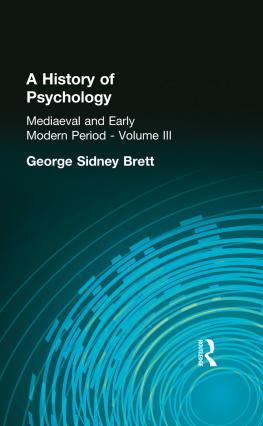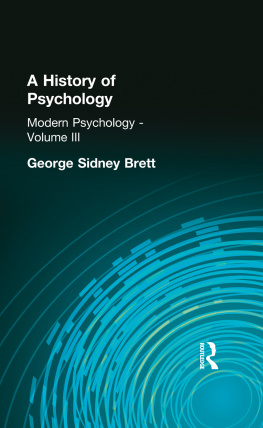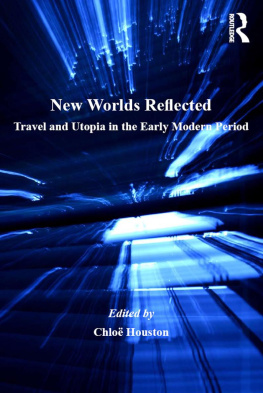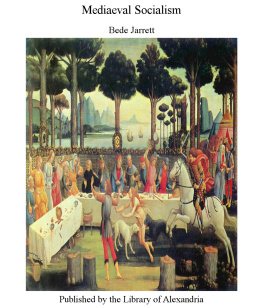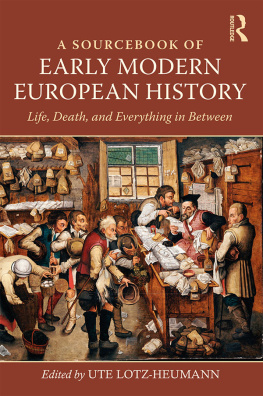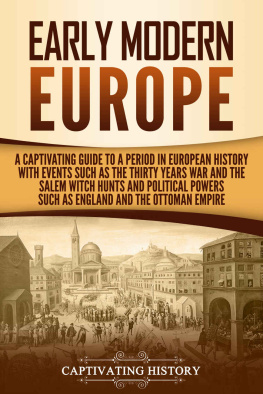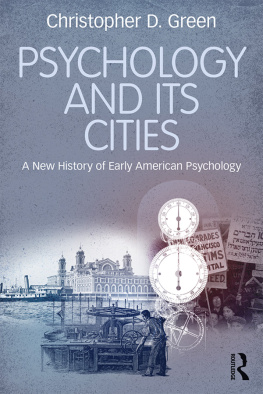Brett - A history of psychology. / Vol. II, Mediaeval and early modern period
Here you can read online Brett - A history of psychology. / Vol. II, Mediaeval and early modern period full text of the book (entire story) in english for free. Download pdf and epub, get meaning, cover and reviews about this ebook. City: Abingdon, Oxon, New York, NY, year: 2014,1921, publisher: Taylor and Francis;Routledge, genre: Religion. Description of the work, (preface) as well as reviews are available. Best literature library LitArk.com created for fans of good reading and offers a wide selection of genres:
Romance novel
Science fiction
Adventure
Detective
Science
History
Home and family
Prose
Art
Politics
Computer
Non-fiction
Religion
Business
Children
Humor
Choose a favorite category and find really read worthwhile books. Enjoy immersion in the world of imagination, feel the emotions of the characters or learn something new for yourself, make an fascinating discovery.
- Book:A history of psychology. / Vol. II, Mediaeval and early modern period
- Author:
- Publisher:Taylor and Francis;Routledge
- Genre:
- Year:2014,1921
- City:Abingdon, Oxon, New York, NY
- Rating:3 / 5
- Favourites:Add to favourites
- Your mark:
- 60
- 1
- 2
- 3
- 4
- 5
A history of psychology. / Vol. II, Mediaeval and early modern period: summary, description and annotation
We offer to read an annotation, description, summary or preface (depends on what the author of the book "A history of psychology. / Vol. II, Mediaeval and early modern period" wrote himself). If you haven't found the necessary information about the book — write in the comments, we will try to find it.
Brett: author's other books
Who wrote A history of psychology. / Vol. II, Mediaeval and early modern period? Find out the surname, the name of the author of the book and a list of all author's works by series.
A history of psychology. / Vol. II, Mediaeval and early modern period — read online for free the complete book (whole text) full work
Below is the text of the book, divided by pages. System saving the place of the last page read, allows you to conveniently read the book "A history of psychology. / Vol. II, Mediaeval and early modern period" online for free, without having to search again every time where you left off. Put a bookmark, and you can go to the page where you finished reading at any time.
Font size:
Interval:
Bookmark:

Muirhead Library of Philosophy
A HISTORY OF PSYCHOLOGY

MUIRHEAD
Muirhead Library of Philosophy
PHILOSOPHY OF MIND AND PSYCHOLOGY
In 17 Volumes
| I | The Nature of Thought (Vol I) | Blanshard |
| II | The Nature of Thought (Vol II) | Blanshard |
| III | A History of Psychology (Vol I) | Brett |
| IV | A History of Psychology (Vol II) | Brett |
| V | A History of Psychology (Vol III) | Brett |
| VI | The Subject of Consciousness | Evans |
| VII | Imagination | Furlong |
| VIII | Mental Images | Hannay |
| IX | Nature, Mind and Modern Science | Harris |
| X | Hypothesis and Perception | Harris |
| XI | The Problems of Perception | Hirst |
| XII | Memory | Smith |
| XIII | Analytic Psychology (Vol I) | Stout |
| XIV | Analytic Psychology (Vol II) | Stout |
| XV | Philosophy and Psychical Research | Thakur |
| XVI | Enigmas of Agency | Thalberg |
| XVII | Contemporary Psychology | Villa |
A HISTORY OF PSYCHOLOGY
Mediaeval & Early Modern Period
Volume II
GEORGE SIDNEY BRETT

First published 1921 by Routledge
Published 2013 by Routledge
2 Park Square, Milton Park, Abingdon, Oxon OX14 4RN
711 Third Avenue, New York, NY, 10017, USA
Routledge is an imprint of the Taylor & Francis Group, an informa business
All rights reserved. No part of this book may be reprinted or reproduced or utilized in any form or by any electronic, mechanical, or other means, now known or hereafter invented, including photocopying and recording, or in any information storage or retrieval system, without permission in writing from the publishers.
The publishers have made every effort to contact authors/copyright holders of the works reprinted in the Muirhead Library of Philosophy. This has not been possible in every case, however, and we would welcome correspondence from those individuals/companies we have been unable to trace.
These reprints are taken from original copies of each book. In many cases the condition of these originals is not perfect. The publisher has gone to great lengths to ensure the quality of these reprints, but wishes to point out that certain characteristics of the original copies will, of necessity, be apparent in reprints thereof.
British Library Cataloguing in Publication Data
A CIP catalogue record for this book
is available from the British Library
ISBN 13: 978-0-415-29609-0 (hbk)
A HISTORY OF PSYCHOLOGY
BY
GEORGE SIDNEY BRETT
M.A. (O XON .)
Professor of Philosophy in the University of Toronto
VOL. II
MEDIVAL & EARLY MODERN PERIOD

LONDON: GEORGE ALLEN & UNWIN LTD.
RUSKIN HOUSE, 40 MUSEUM STREET, W.C. 1
NEW YORK : THE MACMILLAN COMPANY
First published in 1921
(All rights reserved)
PREFACE
THE first period of the history of psychology was described in a volume published in 1912 under the title, History of Psychology: Ancient and Patristic. The volumes now published comprise (a) the medival and early modern period, forming this (second) volume, and (b) the nineteenth century, forming a third volume.
The original plan of work has been retained without more change than the differences of the material required. As originally planned this history was to record, in their chronological order, the steps by which psychology has reached its present stage of development. At the same time indications would be given of the relation between psychology and those phases of human thought to which it was allied. The complexity of the result is due to the subject-matter. No one will deny that psychology has intimately affected many spheres of human thought: religion, metaphysics, logic, ethics, politics, sociology, pdagogy, criminology, and other subjects have all felt its impact; in a different way, physics, anatomy, physiology, neurology, chemistry and the general theories of organic life have stood in close relation to its successes and failures: a history of psychology must therefore be highly complex, and any attempt to construct a record of all its currents and cross-currents is sure to seem irrelevant in some respects, inadequate in others.
In order to cope as well as possible with the material, each period has been treated on the same plan. First comes an estimate of the condition of those sciences which at the time were clearly important in the eyes of the authors whose work is to be treated: next comes the description of the works upon psychological topics written during the period: to this is added an account of the general influence of psychology and of the applications of the theories during the period in question. While this conception of the subject involves a large amount of material, an exhaustive encyclopdia of all known writers or works was never contemplated: if it were possible to realize such completeness in the earlier stages, it would still be an unattainable ideal at the later periods. In any case the powers of the historian dwindle perceptibly as his perspective grows shorter. The limit of this work was fixed at the close of the nineteenth century, and that limit has only been overstepped where the line of thought or the sequence of an authors work required completion.
In view of some criticisms passed upon the former volume, some further remarks may be pardoned. A history of a science is a unique species of history. For the content of the science the student may go to the last textbook, where he may learn the established truths without any reference to their genesis or to the men who established them. For those who require no more a history is superfluous: it can add nothing to that knowledge and may be wholly disregarded. But there is another and a different object for which it has a specific function. If the student is not to be left with the idea that knowledge is a fixed quantity of indisputable facts, if on the contrary he is to acquire a real understanding of the process by which knowledge is continually made and remade, he must learn to look at the movement of ideas without prejudice as a separate fact with its own significance and its own meaning for humanity. To despise forgotten theories because they no longer hold good, and refuse on that account to look backward, is in the end to forget that mans highest ambition is to make progress possible, to make the truth of to-day into the error of yesterdayin short, to make history.
Psychology is in some sense a new science, but it has progressed far enough to be conscious of its own claims. It seems, therefore, worth while at this stage to give it the support which may be derived from history. The importance claimed for that history is derived from the ideas expressed above. It is not the kind of importance which belongs either to new discoveries or to antiquarian lore. It is rather the importance that belongs to the great panorama of human effort which it consistently unfolds. However many new psychologies rise and fall, however much the final solution of all problems seems to us to be given only to our own generation, it will still be worth while to contemplate this spectacle of a quest which has called forth from the beginning of time the most passionate desires, the most distorted theories, the most bitter disputes, and the most refined thought possible to the human being. It is not for the historian to utter prophesy, but the eye which surveys the whole course of this subject from its meagre beginnings to its present vastness cannot but anticipate a future growth no less significant and perhaps of incredible importance to the human race.
Next pageFont size:
Interval:
Bookmark:
Similar books «A history of psychology. / Vol. II, Mediaeval and early modern period»
Look at similar books to A history of psychology. / Vol. II, Mediaeval and early modern period. We have selected literature similar in name and meaning in the hope of providing readers with more options to find new, interesting, not yet read works.
Discussion, reviews of the book A history of psychology. / Vol. II, Mediaeval and early modern period and just readers' own opinions. Leave your comments, write what you think about the work, its meaning or the main characters. Specify what exactly you liked and what you didn't like, and why you think so.

